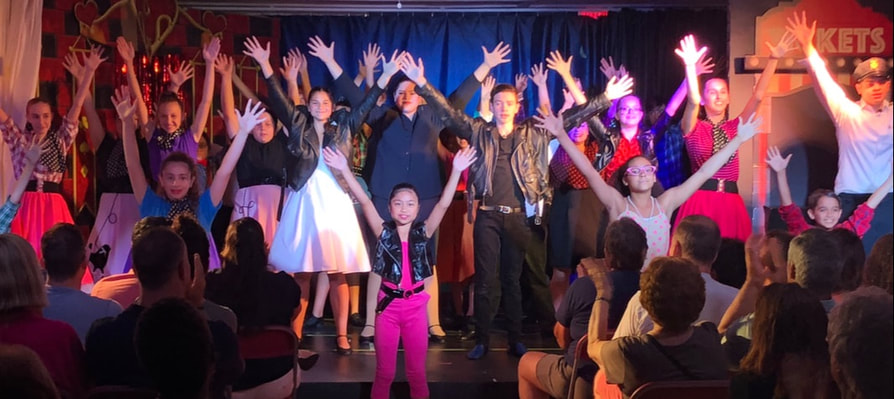Children are natural-born actors. They love to pretend, dress up and perform in front of an audience. It's a natural part of childhood development, but when it comes to finding ways to encourage your child's imagination and creativity, theatre can be especially useful. Here are just some of the ways that theatre can help your child develop important skills as they grow:
Theatre encourages children to be creative.
Theatre is an art form, and like any other artistic medium it can be used to express emotions and feelings. Theatre can also be used as a creative outlet for children who have difficulty expressing themselves verbally or just want to show off their imagination!
Theatre allows children to tell stories with their bodies and voices instead of relying on words alone. This is especially helpful for children who struggle with communication issues such as autism spectrum disorder (ASD) or language impairment (LI). It provides them with another way of communicating through movement while still being able to express what they're thinking in clear ways that everyone understands easily--even those who don't know sign language!
Performing Arts helps build confidence.
Theater can also help children build confidence. Children who participate in theatre are often asked to get out of their comfort zone and do things they wouldn't normally do, such as speak in front of an audience or perform an action that requires them to use their bodies in a new way. They learn how to be brave, which helps them feel good about themselves when they succeed at something difficult and challenging.
Children who participate in theatre often find that they have strengths they didn't know they had before joining the program--for example, if you're shy or quiet by nature but joined a choir and learned how fun it is when everyone sings together! Or if your family doesn't go out often because it takes time away from studying/homework etc., joining sports teams could provide opportunities for socialization with other kids outside school hours (and possibly even make those late nights worth it).
Theatre teaches teamwork.
Theatre is a place where children can learn to work together and communicate. They must be willing to compromise, but also accept criticism from their peers. The ability for children to work as a team is essential in adulthood, so it's important that they learn how early in life!
If your child plans on going into theatre at any point in their life, they'll need these skills anyway!
It enhances communication skills.
Communication is key to any relationship, and communication skills are important in all aspects of life. Theatre can help people understand how to communicate with others, and it can also help those who already have good communication skills improve their ability even more. In addition to learning about effective ways of communicating with their fellow cast members on stage or screen, children who take part in theatrical productions have an opportunity to practice their interpersonal communication skills off-stage as well--including listening actively while others are speaking (and not interrupting), expressing themselves clearly without being aggressive or passive-aggressive toward others' opinions or ideas, responding appropriately when someone asks a question that requires more than just one word (or even two!), etcetera ad nauseum ad infinitum ad absurdum...
Performing arts develops motor skills.
Theatre is a great way to develop motor skills. It helps children learn how to work in a team, communicate with people, and understand the world around them. Theatre also builds confidence by allowing children to feel comfortable in their own skin by using their imaginations while they perform onstage.
It encourages imagination and problem solving.
Theatre is a great place to explore and experiment with ideas. It can help children think about how things work, or even how they might work. For example, if you're acting out a scene in which there's an alien invasion taking place, it's likely that your child will want to know what happens next. The theatre provides an opportunity for them to imagine different scenarios and play out those scenarios using their body as the medium through which they communicate their thoughts and feelings through movement (which is why acting is such a valuable skill).
Theatre is a fun way for children to learn, grow and connect with each other
Theatre is a great way for children to learn and grow. The performing arts are an excellent way for kids to develop their imagination, problem solving skills and social skills. Theatre also teaches children how to work together as part of a team or cast member, which translates into other aspects of life such as classwork or sporting events.
Theatre helps children develop confidence while they are on stage performing in front of an audience--whether it's just their parents or the whole school!
Conclusion
Theatre is a fun way for children to learn, grow and connect with each other. It can be an excellent outlet for children who are shy or introverted, giving them the opportunity to express themselves in ways they might not otherwise do at home or school. The positive impact of theatre on childhood development shouldn't be underestimated!
Read More: 10 essential skills every pre-teens should learn.






